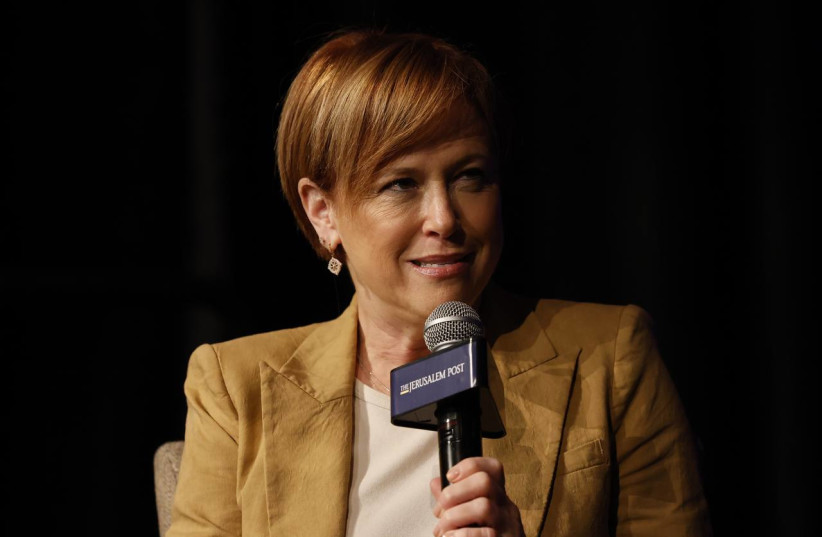“If we don’t disrupt ourselves, someone else will.”
That was Rakefet Russak-Aminoach’s reasoning behind the reinvention-via-digitization of Bank Leumi, one of the nation’s leading financial providers for which she served as CEO until 2019. At Monday’s Annual Jerusalem Post Conference in New York, Russak-Aminoach granted insight toward her journey in bringing Israel’s banking sector to the modern world.
“When I entered my tenure in 2012, I started visiting branches and I saw all these youngsters – kids, soldiers and students, sitting with smartphones waiting for half an hour, sometimes an hour. And I realized that actually, they could do everything online, if we only knew how to serve them,” she recalled.
“But the thing was that in 2012, banks continued to serve their customers in the same way they did many, many years ago. So we started a very aggressive digital transformation,” she said. “It helped us with costs – and [more than that], it was fun; leading such a big ship like Leumi in a different direction was challenging, and I liked it. But the real thing for me was that I fell in love with technology, and I learned that technology is really a magic that you can do a lot with.”
Russak-Aminoach explained further that 2021 was a banner year for financial technology, declaring it “the year of fintech.” According to the former Leumi CEO, “Over 100 fintech companies went public in 2021. Globally, more than 1,500 fintech companies were acquired in 2021. The investments were three times what we had in 2020, around $140 billion, which is unbelievable,” she said.
“The Israeli angle is [even] more interesting. I would say that Israel became the cyber nation, it became fintech nation, it became the fintech hub – no less than Silicon Valley, or New York or London,” said Russak-Aminoach, who laid out a few of the trends that helped Israel secure such a valuable position.

“One is the tech talent that comes from the army. We used to only see them in cyber[security] companies, but now we see them leveraging their data capabilities in order to build FinTech companies,” she said. “Another thing is that we see global fintechs like PayPal coming to Israel and buying companies that become their boots on the ground.”
On the note of global players in the fintech market, she explained that even though there are huge monolithic tech giants like Google or Apple entering the fintech space, the future of the market isn’t cut-and-dry.
“When you look at the financial playground, you see three groups of players: incumbents, fintechs and non-financial providers,” she said.
“The thing is that in financial services, there is a ‘local’ factor – relating to currencies, regulations, governors – which is very significant; that’s why we will not see a global ‘winner’ [in the FinTech arena],” she concluded. That said, though, she noted that there is certainly a challenge to be overcome by rising FinTech companies.
“What we have witnessed in the last decade is that b2c (business to customer) companies are struggling. It’s very difficult to acquire market share in financial services, and that’s why these b2c companies are paying hundreds of millions of dollars to Google and Facebook in order to acquire market share.”
In that sense, Russak-Aminoach explained, “The ‘winner’ will be the model of embedded fintech. Not b2c, but rather b2b2c [business to business to customer], selling FinTech services via incumbents or other hubs of customers. So instead of migrating the customers to buy digital fintech services, we will actually tap into existing customer bases in order to sell more fintech products.”